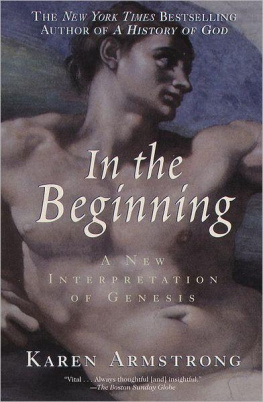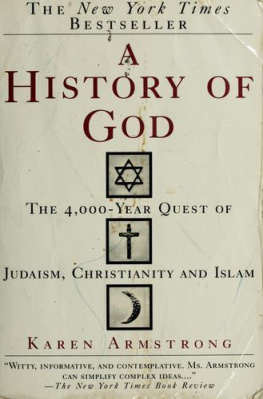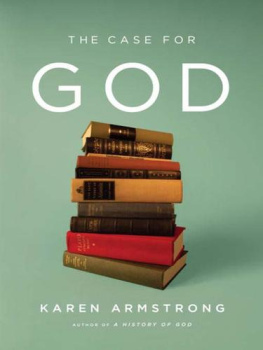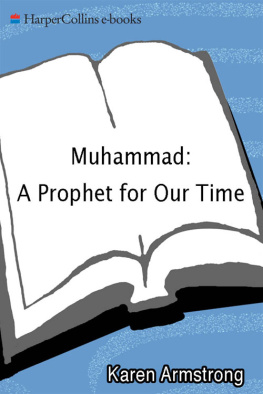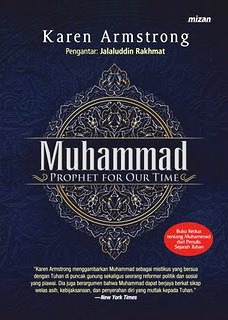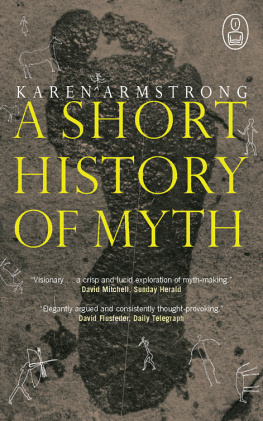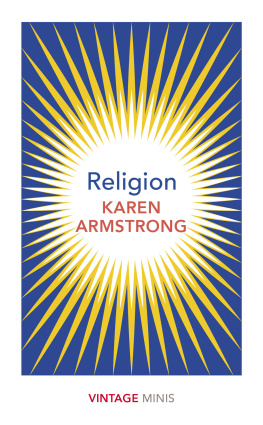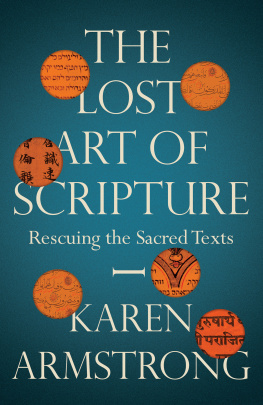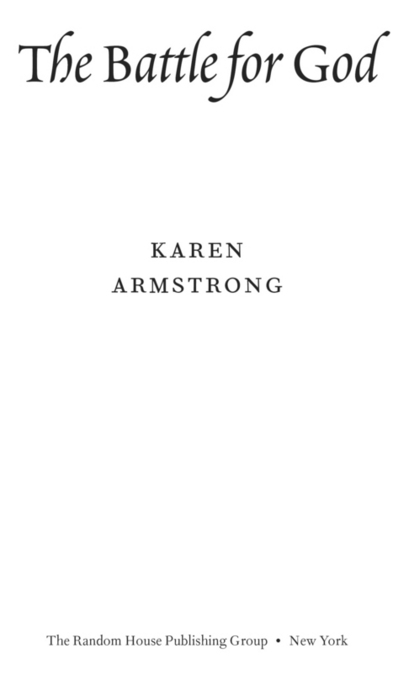NOTHING SHORT OF AMAZING
Karen Armstrong established herself as a religion scholar to be reckoned with in the twentieth century. Now, with her newest book, The Battle for God, Armstrong takes her place of leadership in these new times as well. Armstrong has posed a question for the ages. She has also crafted a book that should not be ignored. If you want to know why fundamentalists do what they do, read The Battle for God.
The San Diego Union-Tribune
Informative and illuminating All of us, [Armstrong] asserts, need to confront the fears generated by the modern world, and if the dominant culture fails to do so, others, such as fundamentalists, will. That is a key message, one that is easily drowned out in contemporary society, with only occasional voices like Armstrongs reminding us that we forget it at our peril.
Los Angeles Times
Intriguing Armstrong succeedsbrilliantlyin placing fundamentalist movements in a historical context, showing how each is both a product of its times and typical of recurring trends. No episode in The Battle for God better illustrates the sweeping power of fundamentalist belief than the rise of Ayatollah Khomeini and his Islamic government in Iran. Armstrong charts Khomeinis ascent in eye-opening detail.
The San Francisco Examiner and Chronicle
The Battle for God provides a timely and perceptive review of the international surge of militant religion. A strength of the authors study is her effort to understand not only the historical-cultural contexts and consequences of this battle, but what its soldiers perceive to be at stake. The book deserves a wide audience because it provides insights that the advocates of modernity ignore at their peril. It is especially relevant for political leaders who aspire to more than the politics of division.
The Washington Times
An impressive achievement. Armstrong has mastered a mountain of material, added some brilliant insights of her own, and made it accessible to the general reader.
R ABBI H AROLD K USHNER
Author of When Bad Things
Happen to Good People
A B ALLANTINE B OOK
P UBLISHED BY T HE R ANDOM H OUSE P UBLISHING G ROUP
Copyright 2000 by Karen Armstrong
Readers Guide copyright 2001 by Karen Armstrong and
The Random House Publishing Group, a division of Random House, Inc.
Preface copyright 2001 by Karen Armstrong
All rights reserved.
Published in the United States by Ballantine Books, an imprint of The Random House Publishing Group, a division of Random House, Inc., New York, and simultaneously in Canada by Random House of Canada Limited, Toronto.
Ballantine and colophon are registered
trademarks of Random House, Inc.
Ballantine Readers Circle and colophon are
trademarks of Random House, Inc.
www.thereaderscircle.com
Grateful acknowledgment is made to the following for permission to reprint previously published material:
Hutchinson and Amir Taheri: Excerpt from On the Day the Imam Returns from The Spirit of Allah, Khomeini and the Islamic Revolution by Amir Taheri (London: Hutchinson, 1985). Reprinted by permission of Hutchinson, a division of The Random House Group Ltd., and the author, administered by Toby Eady Associates, Ltd.
Scribner and A. P. Watt Ltd.: Excerpt from The Second Coming by W. B. Yeats from The Collected Poems of W. B. Yeats: Revised Second Edition, edited by Richard J. Finneran, copyright 1924 by Macmillan Publishing Company, copyright renewed 1952 by Bertha Georgie Yeats. Rights outside the United States administered by A. P. Watt Ltd., London, on behalf of Michael D. Yeats. Reprinted by permission of Scribner, a division of Simon & Schuster and A. P. Watt Ltd.
Library of Congress Catalog Card Number: 00-193201
eISBN: 978-0-307-79860-2
This edition published by arrangement with Alfred A. Knopf,
a division of Random House, Inc.
Excerpt from Twelve Steps to a Compassionate Life copyright 2010 by Karen Armstrong
v3.1
For Jenny Wayman
CONTENTS
A NEW PREFACE
S EPTEMBER 11, 2001, will go down in history as a day that changed the world. This was the day when Muslim terrorists destroyed the World Trade Center and a wing of the Pentagon, killing over five thousand people. It was an act that had clearly been designed for television. The blazing towers of the World Trade Center and their subsequent spectacular collapse will likely become icons of the twenty-first century. For the first time ever, the people of the United States were attacked by a foreign enemy on their own soil; not by a nation-state, and not by a nuclear missile, but by religious extremists brandishing only penknives and box cutters. It was an attack against the United States, but it was a warning to all of us in the First World. We felt a new nakedness, a raw vulnerability, and as I write this, just over a month after the atrocity, it is still not clear exactly how this will affect our behavior in this transformed world. But one thing is already certain: nothing will ever be the same again. The affairs and concerns that preoccupied us before September 11 now seem irrelevant. We are facing a period of frightening, disturbing change.
The dynamic of fundamentalism, however, has not changed. Nobody could have predicted the details of this attack, because they were inconceivable. But this was simply the latest and most ferocious offensive conducted by fundamentalists in their ongoing battle for God. As I try to show in these pages, for almost a century, Christians, Jews, and Muslims have been developing a militant form of piety whose objective is to drag God and religion from the sidelines, to which they have been relegated in modern secular culture, and bring them back to center stage. These fundamentalists, as they are called, are convinced that they are fighting for the survival of their faith in a world that is inherently hostile to religion. They are conducting a war against secular modernity, and in the course of their struggle, they have achieved notable results. In the middle of the twentieth century, it was generally assumed by pundits and commentators that secularism was the coming ideology and that religion would never again become a force in international affairs. But the fundamentalists have reversed this trend and gradually, in both the United States and the Muslim world, religion has become a force that every government has been forced to take seriously.
The apocalypse of September 11 can be seen as the logical outcome of the history of fundamentalism described in this book. Fundamentalism is not a conscious archaism, as people often imagine; it is not a throwback to the past. These fundamentalisms are essentially modern movements that could take root in no other time than our own. This was the most devastating fundamentalist attack yet committed against secular modernity, and the terrorists could not have chosen more significant targets. Never have fundamentalists made more skillful use of the modern media than on September 11: Alerted by the crash of the first plane, millions of people were already in front of their television screens in time to watch the second plane plunging into the South Tower of the World Trade Center. The fundamentalists used the modern technology of aviation to bring down magnificent buildings that had seemed like a modern Babelbuilt in defiance of nature. To a fundamentalist, such structures could seem a human challenge to the supremacy of God. The World Trade Center and the Pentagon, symbols of the economic and military might of the United States, fell to the ground like a house of cards before the onslaught of this religious wrath. It was a deadly blow. Not only were thousands of lives lost, but Americas proud self-sufficiency and confidence had crumbled with the towers. Never again would people feel as safe as they did on September 10. For decades, the airplane had given people an experience of superhuman freedom, enabling them to soar high above the clouds, traveling around the world as swiftly as the gods of old. But now many are afraid to fly. They have been grounded, cut down to size, their secular wings clipped, and their confidence severely dinted.


